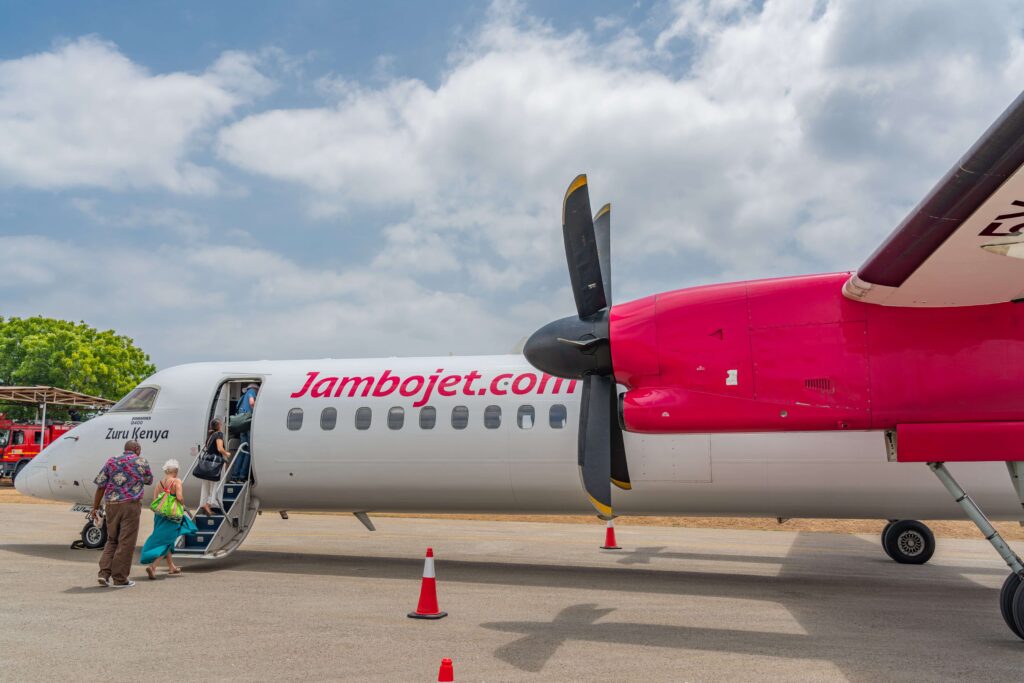Jambojet will grow its fleet to ten aircraft by November as it steps up efforts to serve the rising demand for local air travel.
The budget airline, which is fully owned by Kenya Airways, says the new aircraft will allow it to expand flight frequencies on key routes, especially Nairobi–Eldoret and Nairobi–Kisumu, where passenger traffic has been on the rise.
The carrier plans to raise daily flights on both routes from five to six starting November, with the new addition expected to support both passenger and cargo operations.
Jambojet Chief Executive Karanja Ndegwa told stakeholders in Eldoret that the expansion is designed to open up more business opportunities and enhance tourism.
“With the increasing domestic demand, we intend to increase our daily freight frequencies to and from Eldoret and Kisumu and offer affordable air travel, which will boost tourism growth and expand business opportunities,” he said.
Currently holding 53 percent of Kenya’s domestic air market, Jambojet has been steadily growing its footprint. The airline now targets not only strengthening local routes but also venturing into regional markets such as Uganda and Goma in the Democratic Republic of Congo.
The airline says the Nairobi–Eldoret route alone carried 104,000 passengers between January and June, and it hopes to push the number to 200,000 before year-end.
“The rising demand for air travel on our Nairobi–Eldoret route has seen passenger numbers grow significantly. Between January and June, we served 104,000 passengers on this route alone, and we aim to reach 200,000 by year-end,” Karanja noted.
The government is also upgrading Eldoret International Airport by extending its runway from 3.5 kilometres to 4.1 kilometres to enable larger cargo planes to operate. This development is expected to strengthen Jambojet’s plan of introducing dedicated cargo services, which would address a long-standing gap in the region.
Currently, only Astral Aviation, Fly Emirates and Ethiopian Airlines handle cargo imports at the airport, but often fly back without exports due to limited goods. Jambojet’s entry into this space is being viewed as a timely move to stimulate export trade from the region.
Despite the growth, the airline says it still grapples with rising operating costs. “High operational costs remain a major concern, with fuel alone accounting for 24 percent of our total expenses,” Karanja explained.

